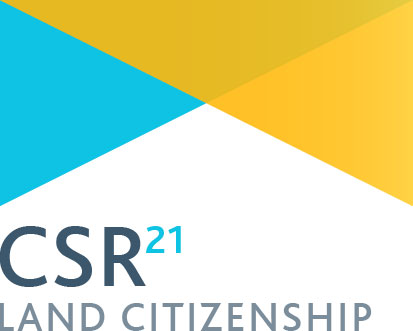
Will BHP Billiton Give Aborigines A “Fair Go”?
Australia, says BHP Billiton chief executive Andrew Mackenzie, has a “unique brand” of liberalism.
“This is a free country, a fair country”, he told an audience of government officials, industry specialists and other stakeholders at the Minerals Week conference in Canberra on 3rd June.
“This is a nation forged by the notion of the fair go. A nation shaped by equality and pragmatism.”
Does that fair go extend to the aboriginal peoples of Australia as well as the culture and business practices of the later settlers. You bet it does – now.
“While at time we have faced challenges”, continued Mr Mackenzie, “this equality and pragmatism has delivered the stable government which built Australia’s reputation as a reliable and ethical supplier of commodities.”
By that Mr Mackenzie presumably means the country fulfils its orders with a minimum of corruption, which may very well be appreciated by Chinese buyers used to less upstanding practises back home.
But whether Australia’s ethical practices also encompass a recognition of and respect for the rights of its own indigenous people remains to be seen.
An Oxfam report produced in 2013 stated that the “vast majority” of mining and oil and gas companies had no intention of gaining the consent of indigenous people to work the land over which they hold licenses.
But that approach, according to Duncan Paterson of investor research group Corporate Analysis Enhanced Responsibility is short-termist at best.
Companies, he said, “increasingly run the risk of losing investor support, since investors know that without consent, projects may be delayed or disrupted, adding unforeseen costs. Investors are becoming savvy when deciding where to put their money.”
At the time of the report, Rio Tinto was the only significant Australian mining company held up as being clear in its commitment to obtain the free, prior and informed consent of indigenous peoples for its operations.
But it appears that BHP Billiton is now attempting to catch up. “The views and concerns of people within our communities are incorporated into our decision-making and we strive for mutually beneficially outcomes”, the company says on its website on a page entitled “Indigenous Communities”.
And in his speech to the Minerals Week conference in Canberra, Andrew Mackenzie emphasised the importance of the rights of the indigenous population to a “fair go”.
“Our notion of the fair go has also seen us strive for ever safer working conditions, endorse and promote free trade, advocate tolerance and free speech and push for inclusiveness and recognition of indigenous Australians”, he said.
Last on the list, but a very tangible mention. “I was pleased last week when BHP Billiton announced its support for Constitutional Recognition and membership of Recognise”, he continued. These are pressure groups campaigning for the incorporation of full equality for indigenous Australians into the country’s constitution, which was written back in 1901 and amended in 1967, but which still explicitly permits racial discrimination in Sections 25 and 51, according to Recognise.
How much of a material difference BHP Billiton’s support will make is open to question, although now that it’s spun off a lot of its peripheral assets into a new London-listed vehicle the company is at least becoming more Australian again.
And even if BHP is for the moment making the right noises, other companies continue to run foul of the old indigenous populations. A long-running conflict over land designated for the use of the Carmichael coal mine in the Galilee Basin in central Queensland continues to generate headlines around the world.
The owner of the mine is Indian company Adani, which explains why this Australian land dispute has even generated the opposition of Maoists, according to reports in The Times of India, since India is one of the few countries where Maosim remains a force. The UK’s Guardian newspaper, meanwhile, draws comparisons with the Athabasca Chipewyan “battling” the tar sands of Alberta, the Achuar Indians fighting oil and gas in the Amazon and the Ogoni and Ijaw’s fight against Shell in the Niger Delta.
These are some of the focal points for indigenous resistance around the world, and Mr Mackenzie and his ilk are clearly extremely concerned not to get their own companies embroiled in such a costly public relations battle.
After all, BHP’s own track record isn’t exactly spotless. It has confronted indigenous groups before in the Pilbara, and is famous for the environmental disaster that it caused in the country to the north of Australia, Papua New Guinea, at the Ok Tedi mine. Here, an entire ecosystem centred around two rivers, the Ok Tedi river and the Fly river, was decimated.
Given that indigenous rights in Australia have only been recognised within the last generation, it’s hardly surprising that indigenous representatives remain wary of high level corporate protestations of goodwill. It’s on the ground where things really matter.





